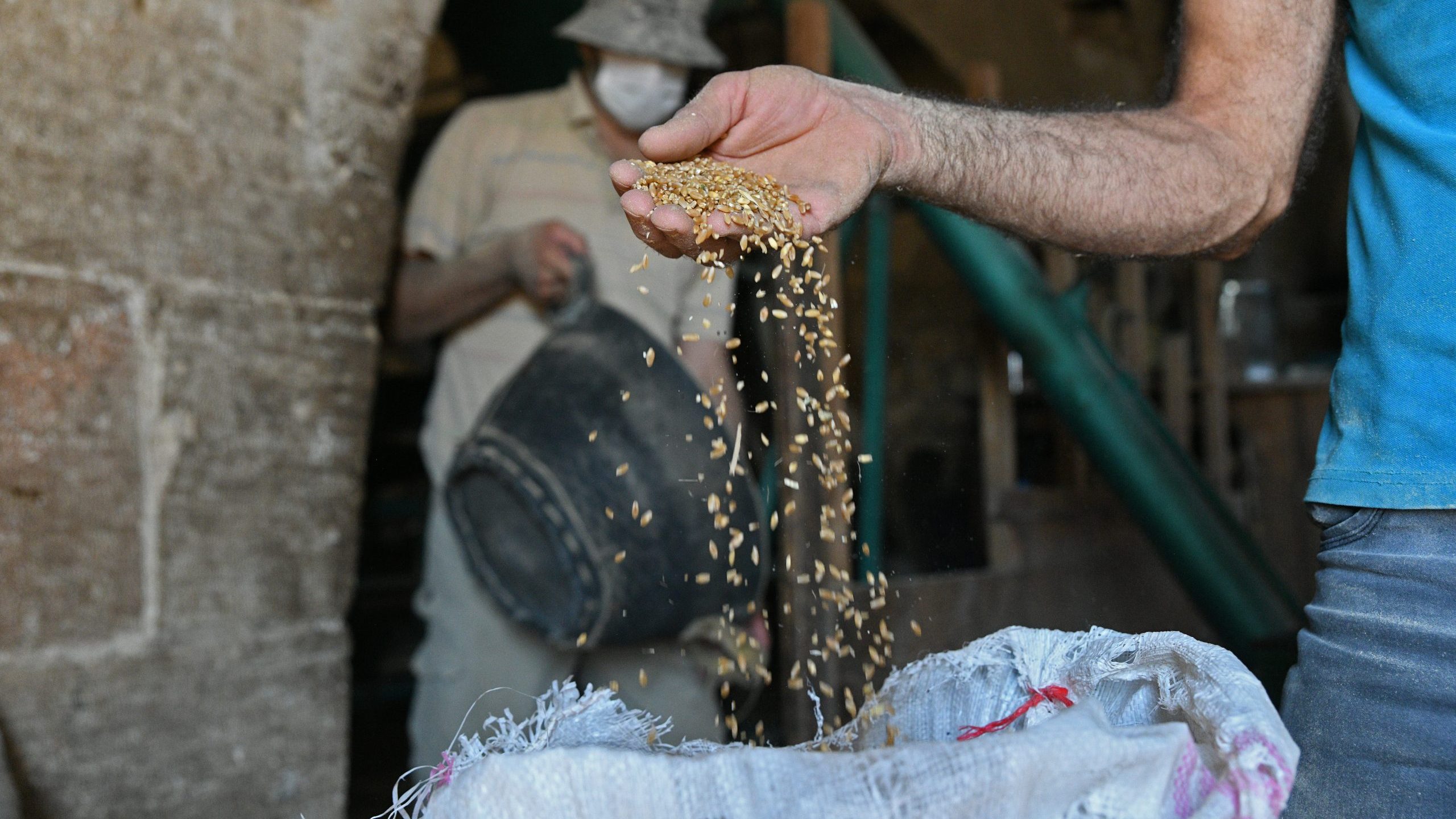The Autonomous Administration of North and East Syria, also known as Rojava, has acknowledged a wheat grain shortage that could affect next year’s production.
Wheat received from Rojava areas amounted to about 388,000 tons for flour, while the quantities of raw seeds amounted to about 75,000 tons, the head of the region’s Agriculture and Irrigation Authority, Muhammad Al-Dakhil, told Asharq Al-Awsat.
“These numbers are alarming,” warned Al-Dakhil, adding that they portend ramifications for food security in an area once considered “Syria’s food basket.”
This year’s wheat harvest hardly meets the needs of Rojava residents.
“We need 600,000 tons annually of wheat material prepared for flour, and thus there is a deficit of approximately 200 thousand tons of wheat,” revealed Al-Dakhil.
Read Also: Russia and Syria Regimes Fuelling Food Insecurity
According to Al-Dakhil, the Authority will distribute seeds produced this year’s season after sifting as farmers require around 75,000 tons of seeds for the next agricultural season.
Rojava areas, which include seven major cities and towns in four of Syria’s northeastern governorates, consume about 600,000 tons of wheat annually to produce subsidized bread and 200,000 tons for sowing.
For the second year in a row, Rojava regions and the rest of Syria have been ailed by a wave of severe drought.
Al-Dakhil pointed out that climatic changes and droughts have “resulted in the death of plants, and a decrease in the quantities of irrigable water stored in dams, which caused a loss of arable areas in the summer season.”
Last year, the Authority was forced to purchase more than 100,000 tons of wheat to produce flour for bread.
This prompted the Economy and Planning Authority and the Mills Directorate to mix yellow corn at a rate of 20% with wheat flour.
Today, Syria’s wheat production amounts to a third of what it used to be in 2019, estimated at 2.2 million tons. Syria’s wheat production before 2010 was estimated at 4.1 million tons annually.
Calls on Syrian Investors to Return
In a relevant story, Hazem Ajjan, director of the industrial city in Sheikh Najjar in northern Syria, called Saturday on Syrian expatriates to invest in the industrial city in Aleppo.
He stressed that all the encouraging factors for production have improved, especially the availability of a 24-hour electricity supply.
Speaking at the Expatriates Forum in Khan al-Harir market in the old city of Aleppo, Ajjan said 810 establishments have already started operation. Half of the firms are funded by expatriates.
In a statement to the official Tishreen newspaper, Ajjan noted that the administration of the industrial city in Sheikh Najjar, in cooperation with the concerned authorities, is working seriously and vigorously for the return of industrialists who were forced during the war to move their factories and work to other countries.
Fares al-Shihabi, the head of the Aleppo Chamber of Industry, called on Syrian industrialists abroad to return to Syria, where they could restore and rehabilitate their factories. He stressed essential elements, such as energy, electricity and water, are available to run the facilities.
Al-Shihabi then confirmed that the industrial sector is gradually improving.
The electricity supply in Aleppo improved remarkably after President Bashar Assad made his first visit to the northern city this month since his forces recaptured it in 2016.
He reopened a thermal power plant expected to generate 200 megawatts of electricity.
The Syrian Observer has not verified the content of this story. Responsibility for the information and views set out in this article lies entirely with the author.


